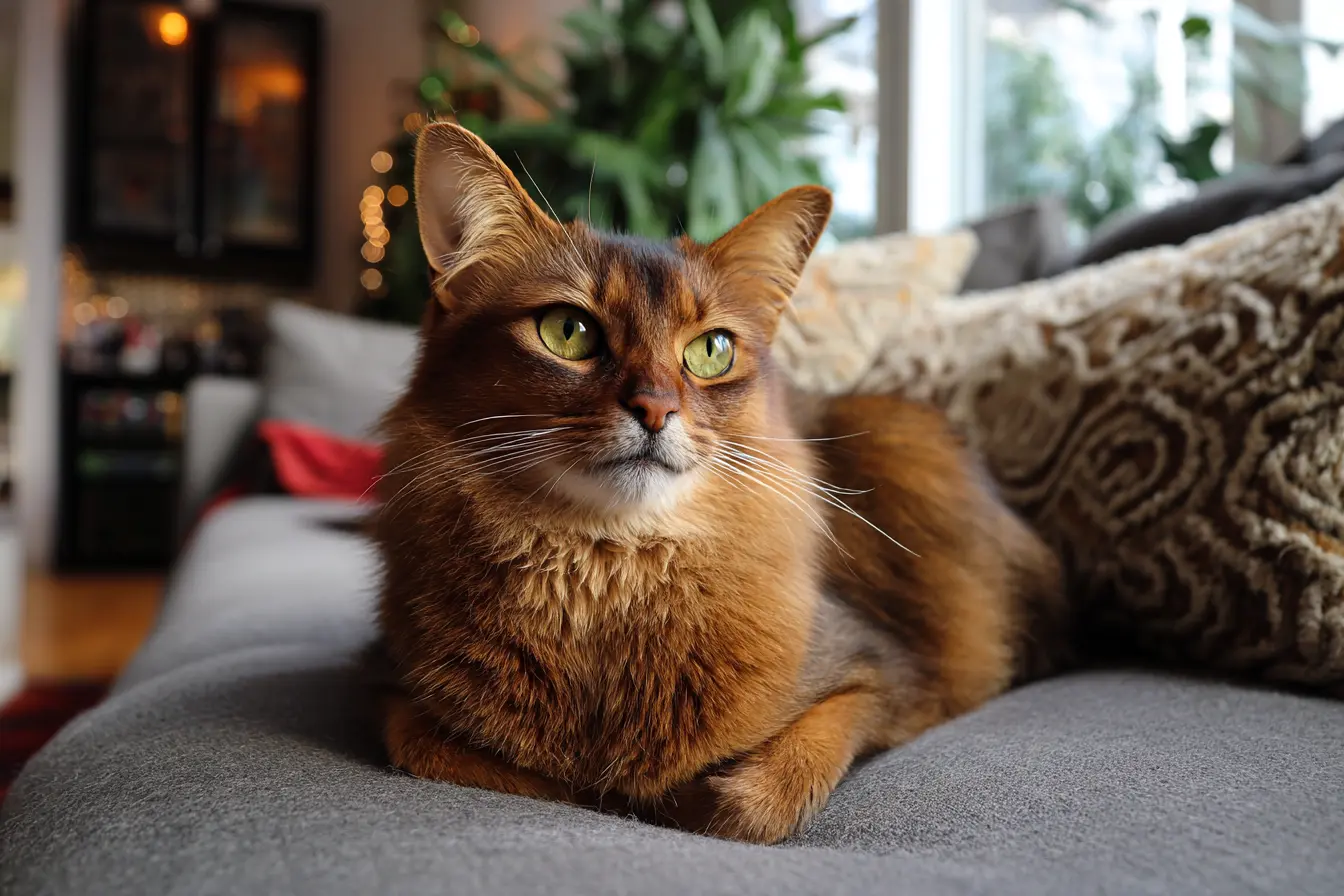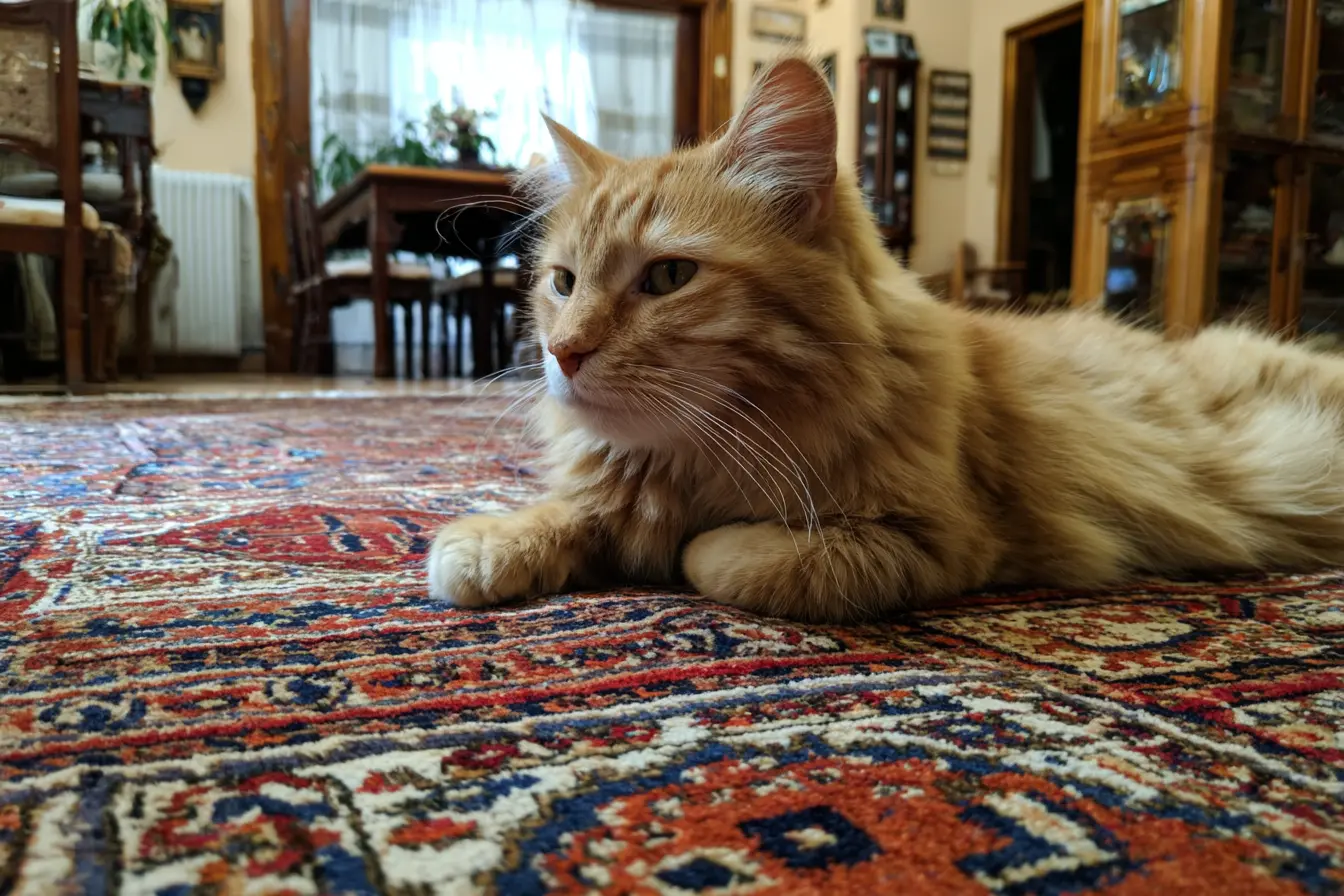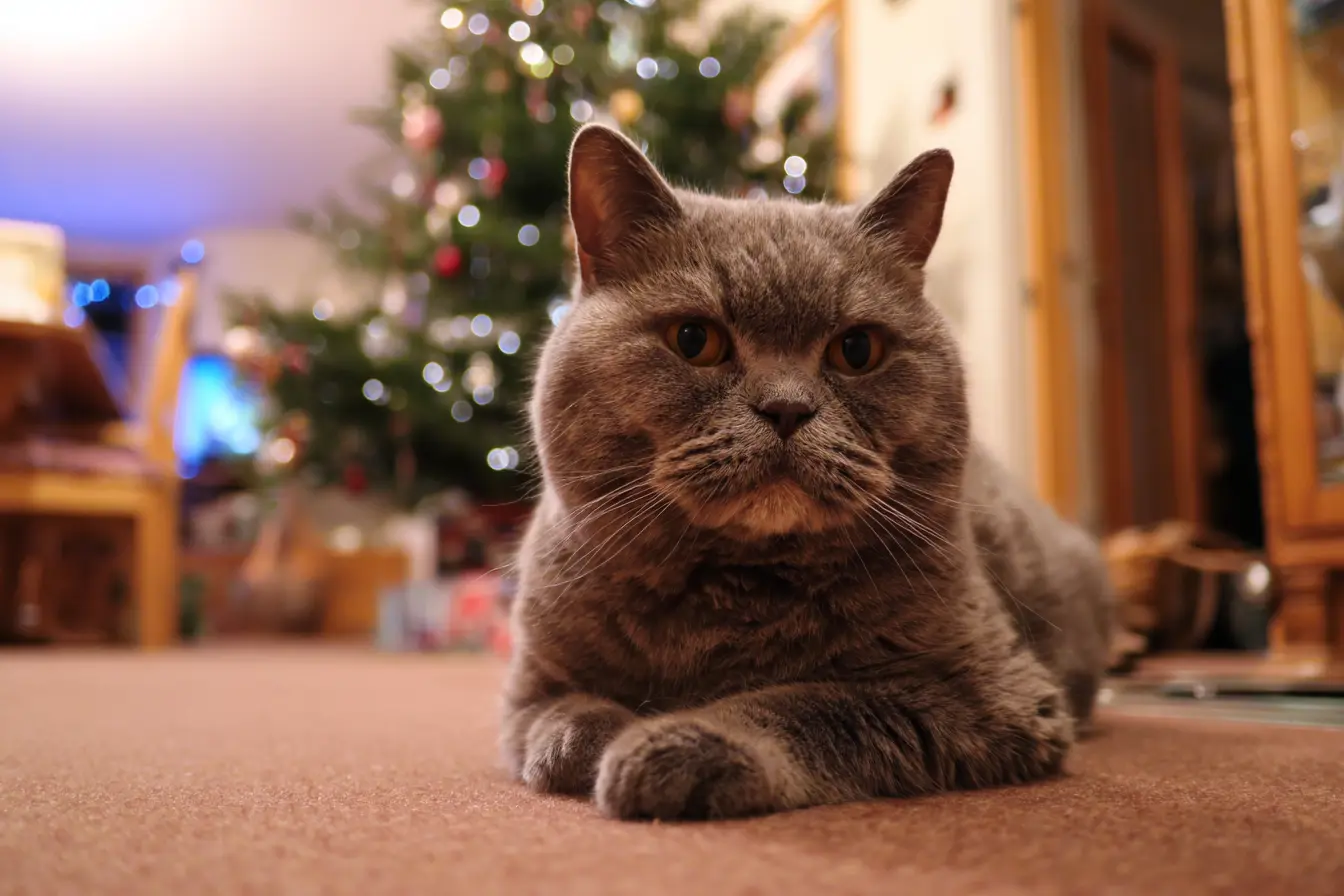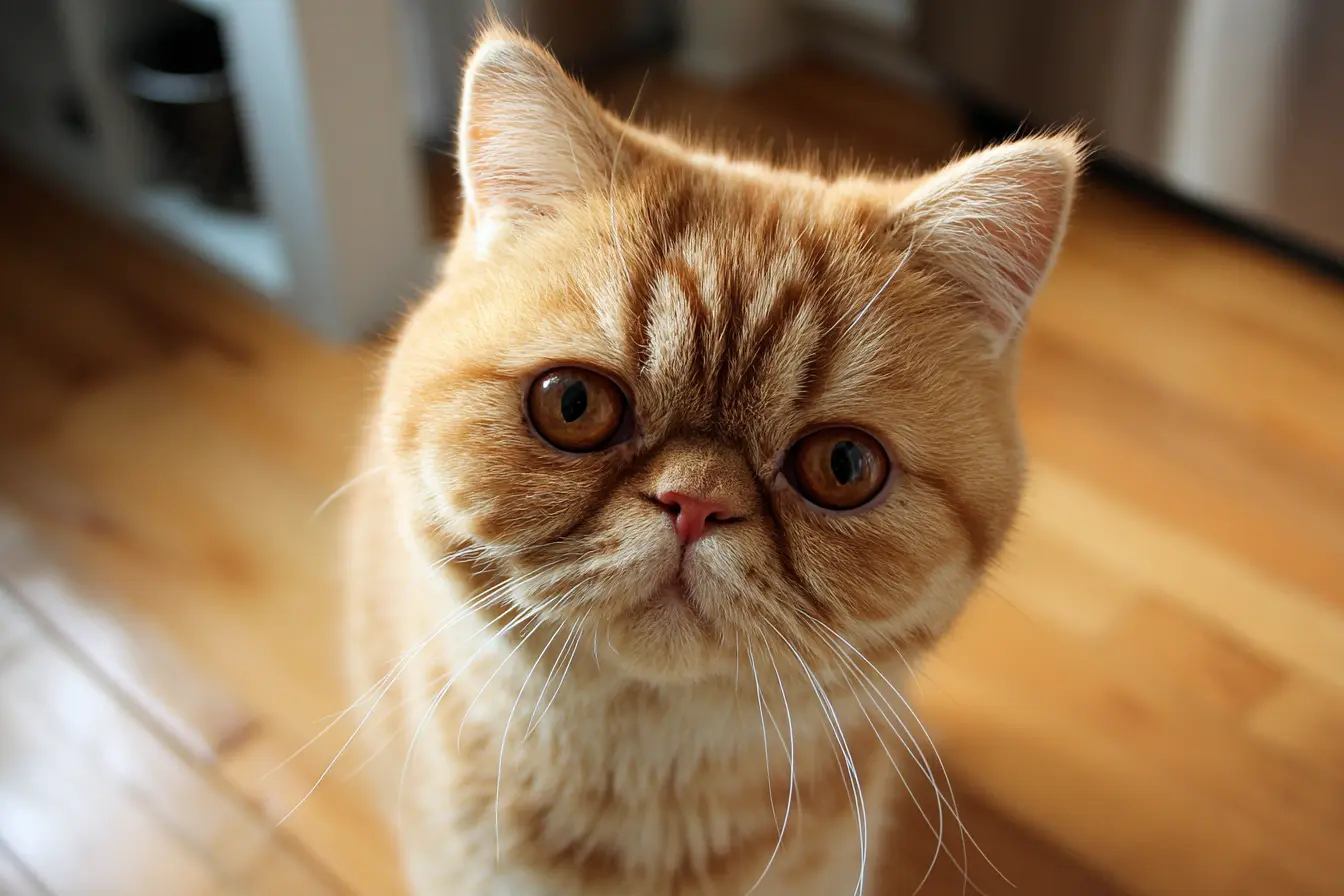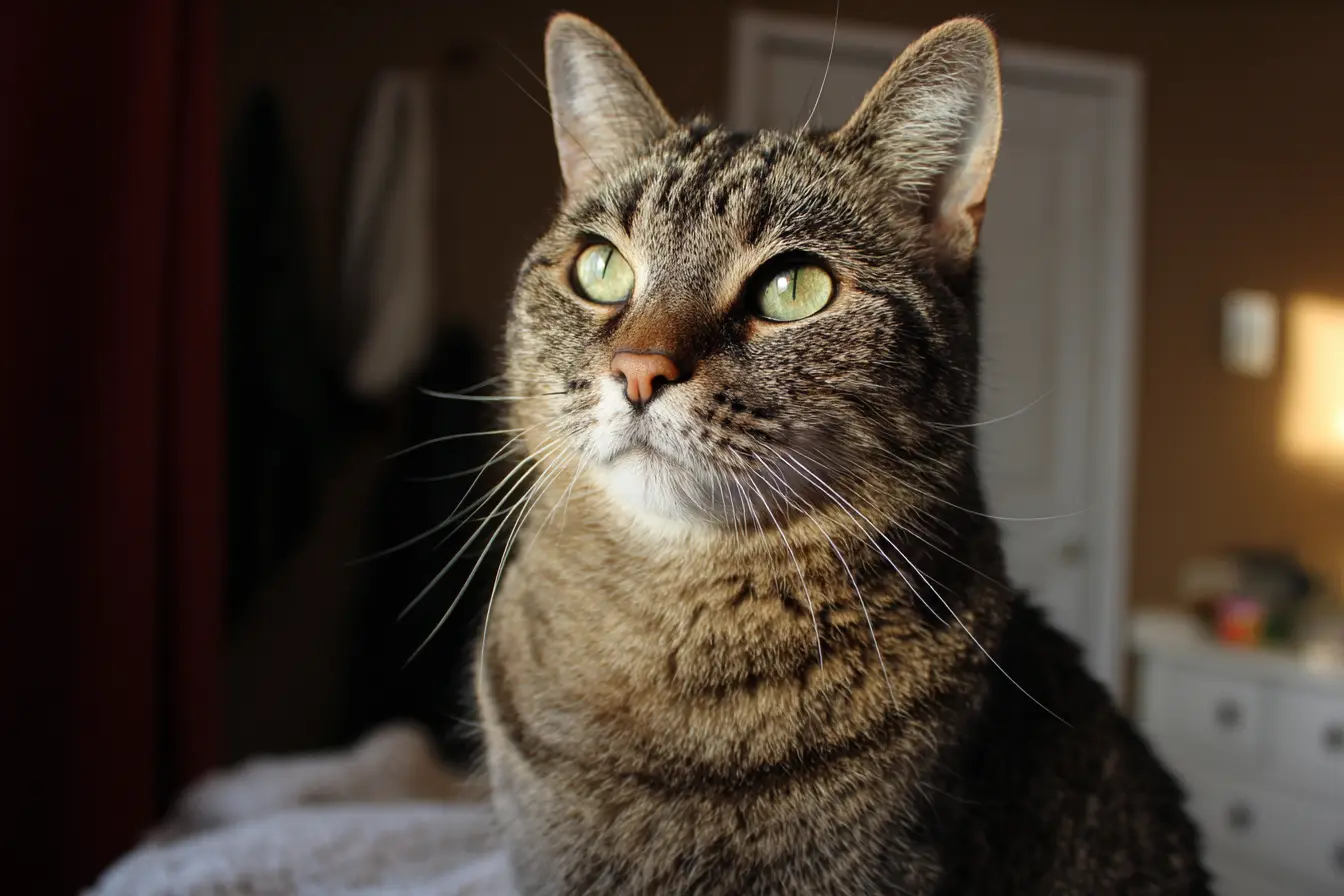
The American Shorthair cat: a dependable and friendly feline
If you're looking for a classic, all-American cat breed that combines good health, good looks, and an even-tempered personality, the American Shorthair is a strong contender. Originally bred for their working ability and now beloved for their companionship, this breed is one of the most popular and well-rounded choices for families, singles, and first-time cat owners.
This guide explores the American Shorthair's history, temperament, care needs and why it remains such a cherished breed.
Breed history and characteristics
The American Shorthair descends from cats that arrived in North America with early European settlers. Valued for their skill in controlling rodent populations on ships and farms, these cats were eventually recognised and selectively bred to preserve their natural strength, endurance and friendly personality. The breed was officially named the American Shorthair in the 1960s to distinguish it from other domestic shorthaired cats.
These cats are medium to large in size, with a muscular build, broad chest and strong legs. Their faces are round with full cheeks, and they have large, expressive eyes. The coat is short and dense, designed to protect against the elements. While silver tabby is the most iconic colour, American Shorthairs come in a wide variety of shades and patterns.
Temperament
American Shorthairs are known for their gentle, adaptable nature. They are affectionate without being clingy, and enjoy spending time with their people while also being perfectly content entertaining themselves. They are good with children and tend to get along well with other pets, including dogs.
While not overly vocal or attention-seeking, they enjoy interactive play and will happily chase a toy mouse or bat around a feather wand. They are intelligent, calm, and good at adjusting to different types of households, whether active or more quiet and relaxed.
Health and lifespan
One of the reasons the American Shorthair remains so popular is its reputation for good health and longevity. These cats often live between 15 and 20 years and are generally free from many of the hereditary issues seen in more intensely bred pedigrees.
However, some lines may be prone to hypertrophic cardiomyopathy (HCM), a common heart condition in cats. They can also gain weight easily if not given enough exercise. Regular check-ups, a balanced diet and weight management are key to keeping them healthy.
Grooming and care
The American Shorthair’s short, dense coat is easy to maintain. A weekly brush is usually enough to remove loose hair and keep the coat in good condition. They shed moderately, so more frequent grooming may help during seasonal changes.
As with any cat, routine care is important. This includes:
- Nail trimming
- Dental hygiene
- Ear checks and cleaning
- Providing scratching posts and interactive toys
They are typically fastidious about litter box cleanliness, so a tidy tray is essential.
Living environment
American Shorthairs are highly adaptable and can live comfortably in a range of environments, from busy family homes to quiet flats. They don’t require constant attention but do benefit from companionship and stimulation. They enjoy sunny windows, safe indoor spaces to explore, and occasional play sessions to burn off energy.
Because of their strong hunting instincts, it’s important to keep them entertained indoors or provide a safe outdoor enclosure. Many American Shorthairs also enjoy puzzle toys and interactive feeders.
Training and socialisation
Thanks to their intelligence and steady personality, American Shorthairs are easy to train and socialise. They can learn routines, respond to their names, and enjoy mentally stimulating games. They are also tolerant of new people and pets when introduced gradually, making them a good choice for multi-animal households.
American Shorthairs in the UK
The American Shorthair is not a common breed in the UK, and it is relatively rare to find them through major UK-based cat registries such as the GCCF. Most American Shorthairs in Britain are either imported or bred by specialist enthusiasts affiliated with international cat organisations like TICA or CFA.
If you’re in the UK and interested in owning an American Shorthair, you may need to contact breeders abroad or look for UK-based breeders who operate within international pedigree clubs. Alternatively, you may find similar traits in more widely available breeds such as the British Shorthair, which shares the American’s calm nature and sturdy build.
Importing an American Shorthair is possible but requires research into transport, quarantine, and health documentation. Be sure to work with breeders who adhere to ethical practices and are happy to provide health clearances for their cats.
Considerations for prospective owners
- American Shorthairs are independent but affectionate and suit a wide range of lifestyles
- They have moderate energy levels and benefit from regular play but don’t require constant stimulation
- Their grooming needs are minimal, but regular brushing helps manage shedding
- Look for reputable breeders who screen for common heart conditions like HCM
Conclusion
The American Shorthair is a timeless, versatile breed with a lot to offer. Whether you’re looking for a laid-back family pet, a reliable companion for a busy household, or a low-maintenance cat with a charming personality, this breed fits the bill.
Their easy-going nature, good health, and classic good looks have made them one of the most enduring and beloved cat breeds in the United States and beyond. If you’re considering adding an American Shorthair to your life, you’ll be gaining a steady, affectionate friend who’s easy to live with and easy to love.
Vets near you
Speciality vets
- Aquatics vet specialists
- Birds vet specialists
- Camelids vet specialists
- Cats vet specialists
- Cattle vet specialists
- Deer vet specialists
- Dogs vet specialists
- Equines vet specialists
- Exotic vet specialists
- Goats vet specialists
- Pigs vet specialists
- Poultry vet specialists
- Sheep vet specialists
- Small Mammals vet specialists
- Wild vet specialists
Vet facilities
- Accessible by public transport
- Blood testing
- Car park nearby
- Client car park
- Dentistry
- Diagnostic imaging
- Disabled public access
- Flea and worm treatments
- Microchipping
- Mobile services
- Neutering
- Open at weekends
- Out-of-hours service
- Referral interests
- Referrals only
- Street parking outside
- Toilets available
- Vaccinations
